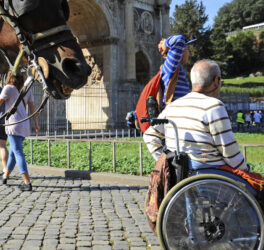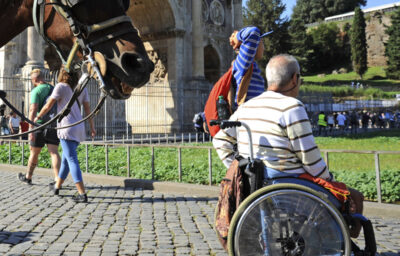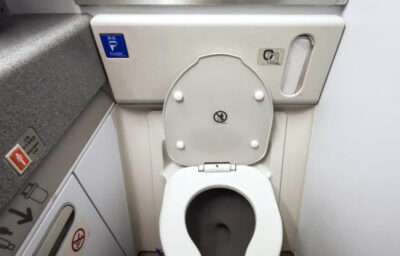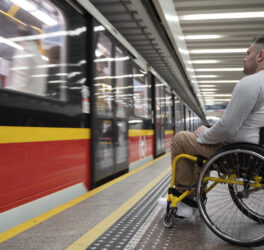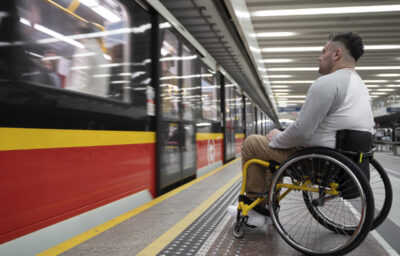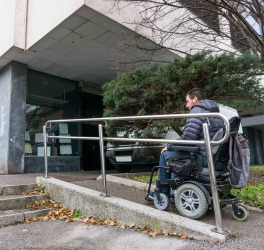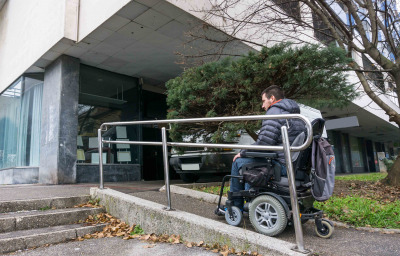
Stopping the spread of COVID-19 is difficult enough. It’s even more complicated and confusing when information and resources provided by governments are largely inaccessible to persons with disabilities.
A newly-published global survey of national health authority websites in nearly 200 countries has directly quantified COVID-19 information accessibility.
The survey, published on January 27, 2021 in the journal Frontiers in Medicine, was conducted by researchers and medical professionals from Bar-Ilan University’s Azrieli Faculty of Medicine, the Galilee Medical Center and Tel Aviv University.
The researchers utilized universal accessibility criteria written by the Web Accessibility Initiative (WAI), to determine what percentage of national health authority websites fully implemented accessibility principles of the WAI, a global organization seeking to improve website accessibility. With the rise in smartphone use as a primary method of gaining Internet access, the researchers also tested the “mobile-friendliness” of the government websites.
Surprisingly, only a few of the countries examined fully adhered to the WAI guidelines. These included Italy, the Netherlands, Norway, Japan, Poland, South Korea, the United Kingdom, and the United States. In contrast, websites from the majority of the 189 countries surveyed continue to contain accessibility errors that present significant barriers to people with disabilities. Additionally, many countries also had mobile websites which were not accessible for people with disabilities. The results show that 89% of countries have websites which do not conform to internationally recognized accessibility guidelines.
The data revealed by the scientists show that most national health authority websites contain errors that may make site navigation difficult for people with disabilities. As a result, not everyone has equal access to government health websites and, therefore, information to stop the spread of COVID-19.
“If we want to defeat this pandemic, we can’t ignore billions of people with disabilities,” says Dr. Amiel Dror, of Bar-Ilan University’s Azrieli Faculty of Medicine and the Department of Otolaryngology at the Galilee Medical Center, the corresponding author of the survey. “As a clinician-scientist, I see the disparities and barriers that our patients are faced with daily; this has increased dramatically during the COVID-19 pandemic. We cannot expect adherence to the rules of mask wearing, hygiene and social distancing in the fight against the pandemic if information is not accessible to everyone. This pandemic has highlighted the need for accessible, timely information to every person in the world, regardless of mental or functional disabilities. In the absence of narrated accessible information to people with disabilities, we are unable to call ourselves a truly inclusive society.”
Prof. Karen Avraham, who was involved in the research, says: “This work highlights the importance of intense dialogue between clinicians and researchers to improve the quality of life and access to critical information during emergency situations, such as the one we are facing with this life-threatening pandemic.”
“I hope that in parallel to the intensive laboratory studies undertaken, we can promote the legacy of raising awareness for inclusiveness principles to be implemented in the community, country, and globally,” says Dr. Eyal Sela, Head of the Department of Otolaryngology Head and Neck Surgery at the Galilee Medical Center and a member of the Azrieli Faculty of Medicine of Bar-Ilan University, who was involved in the research.
The researchers urge that the growth and expansion of the Internet must be accompanied by an equal development of sophisticated accessibility technologies, which would expand the usability of the web to individuals with disabilities. The current COVID-19 pandemic highlights just how important unhindered access to government websites is during a global health crisis. “Pandemic preparedness initiatives in every healthcare system must include awareness provisions for people with disabilities,” says Dr. Dror. “It must be included in the DNA of humanity.”

